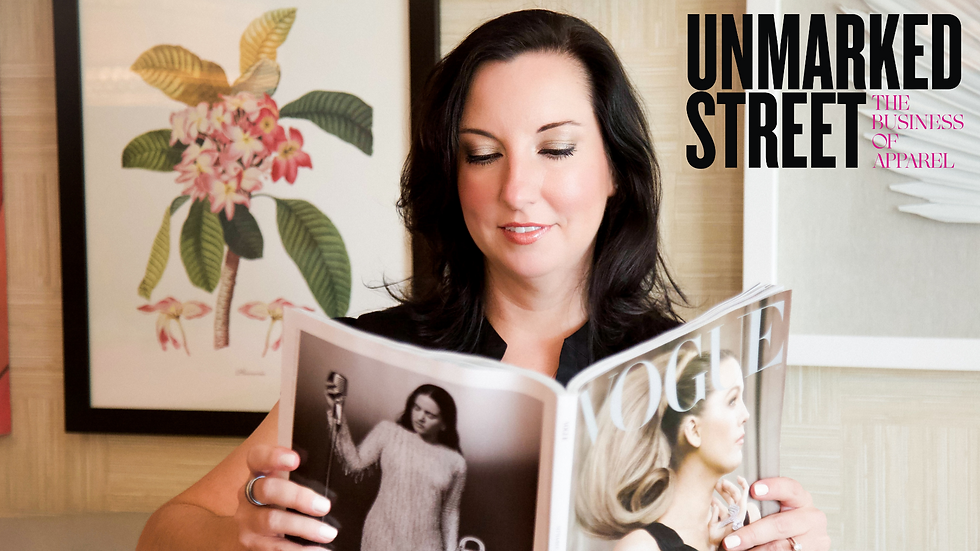Sustainable Apparel Isn’t Just Ethical—It’s Profitable. Here’s Why.
- Rachel Erickson

- Jul 29, 2025
- 4 min read

For a long time, sustainability in fashion was seen as admirable—but optional. A nice-to-have, not a need-to-have. But that mindset is shifting fast.
Today, sustainability is no longer just about ethics. It’s a business strategy that delivers real financial benefits. From growing consumer demand to reducing waste and developing stronger brand loyalty, sustainable fashion brands are proving that what’s good for the planet can also be good for your bottom line.
In this post, we’ll explore six powerful reasons why building a sustainable apparel brand is not just the right thing to do—but the profitable thing to do.
1. Consumers Are Demanding It
Today’s shoppers care. A lot. According to a 2023 McKinsey & Company study, 67% of Gen Z consider sustainability a key factor in purchasing decisions. Millennials are close behind—and Gen Alpha is growing up with eco-conscious values as the norm, not the exception.
In short: consumers are voting with their wallets. Brands that align with those values are seeing measurable gains in loyalty and sales. The ones that don’t? They're falling behind.
Transparency
Ethical sourcing
Eco-friendly materials
These aren’t “nice” marketing extras anymore—they’re the baseline. Sustainability builds trust, and trust builds retention. In a saturated market, that’s the difference between one-time customers and lifelong brand fans.
2. Sustainable Products Command Higher Prices
Let’s talk margins.
One of the most profitable aspects of sustainable fashion is that customers expect to pay more for it—and are happy to. A 2022 IBM survey showed that nearly half of shoppers would pay up to 59% more for ethically made or environmentally friendly products.
That means you don’t have to compete on price—you can compete on value.
When you use organic fabrics, fair labor, and low-impact production, you’re not just selling a t-shirt. You’re selling a mission. A belief system. A brand people are proud to support.
And that story? It’s worth more.
3. Reducing Waste Cuts Costs
Waste isn’t just bad for the planet—it’s bad for your profit margins.
Traditional fashion is loaded with inefficiencies: overproduction, markdowns, deadstock, and unsold inventory. Sustainable brands take a different approach—using systems and models designed to minimize waste and maximize efficiency, including:
Made-to-order production
Limited product drops
Inventory planning software
Deadstock fabric sourcing
Zero-waste design practices
These methods reduce material costs, shrink storage needs, and lower your risk. And when you're not paying to store, discount, or destroy unsold goods? That’s money back in your pocket.
4. Brand Equity Pays Off Long-Term
Yes, sustainable materials and ethical manufacturing may cost more up front. But over time, that investment builds incredible brand equity.
When your customers believe in what you stand for, they:
Tell their friends
Share your products online
Stick with you for the long haul
This kind of organic loyalty is powerful. It reduces your dependency on paid ads and keeps your customer acquisition cost low.
Over time, sustainable brands enjoy:
Higher customer lifetime value (CLV)
Lower churn
More word-of-mouth growth
It’s the long game—but it’s how you build a fashion business that lasts.
5. Sustainability Opens New Doors
Ethical and sustainable practices don’t just attract customers—they attract partners, platforms, and investors.
Major retailers like Nordstrom, Zalando, and Net-a-Porter now prioritize eco-conscious brands. Want to land a wholesale deal or retail shelf space? Sustainability could be the key that opens the door.
The same goes for funding. Many VC firms, grant programs, and accelerators specifically look for impact-driven brands. Being able to show that your brand prioritizes social and environmental responsibility isn’t just a bonus—it could make you eligible for investment others aren’t.
Going green doesn’t limit your opportunities. It multiplies them.
6. Regulations Are Coming—Be Ready
The fashion industry is heading toward a wave of regulatory change. From the EU’s Green Deal to Extended Producer Responsibility (EPR) policies, more governments are enforcing rules around waste, sourcing, and transparency.
Brands that haven’t integrated sustainability into their supply chains may soon face:
Fines
Compliance costs
Reputational damage
Those that proactively implement ethical practices—like traceability, responsible sourcing, and circular models—will be ready. And that readiness translates into cost avoidance and peace of mind.
Being proactive is cheaper than being reactive.
Final Thoughts: Sustainability Is a Smart Business Move
Too often, brands view sustainability as something to "add later"—once the business is already profitable. But that logic is backwards.
Sustainability creates profitability.
It helps you:
Align with your target audience
Increase your margins
Reduce waste and inefficiencies
Build a brand people trust and share
Access more retail, funding, and press opportunities
Stay ahead of industry regulations
So if you’re on the fence about using organic materials, adjusting your production model, or telling your sustainability story—this is your sign.
Don’t wait.
In today’s fashion economy, doing the right thing isn’t just ethical. It’s profitable.
Want Help Going Green (and Profitable)?
We’re breaking down sustainable production models, pricing strategies, and material sourcing over on our YouTube Channel—with visuals, real examples, and founder case studies.
Ready to take action now? Let our team help you start making changes that align with your values and your growth goals.
Let’s build the future of fashion—better for people, better for the planet, and better for business.




